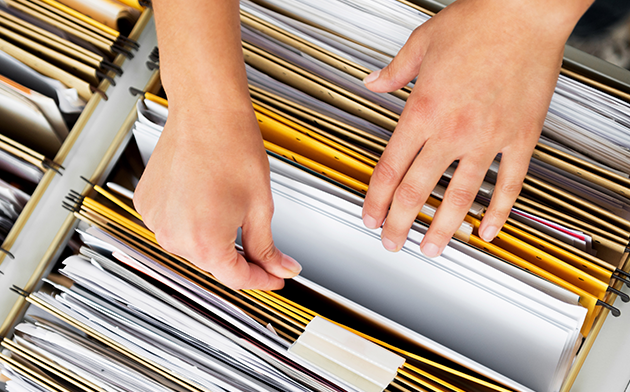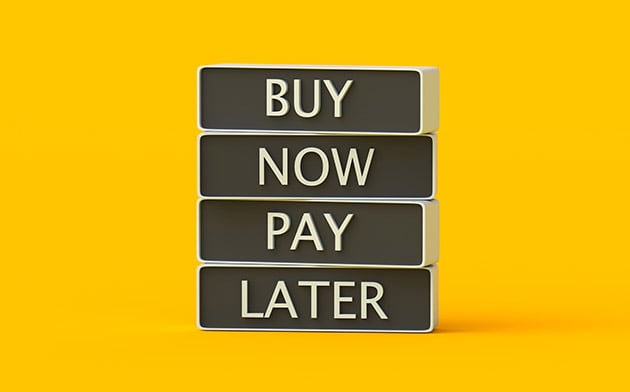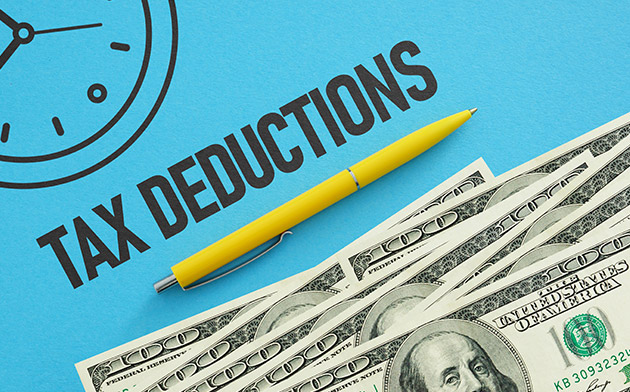Stop for a moment and think about all the bills, receipts, paystubs, account statements, and other essential financial paperwork that comes your way on a monthly basis. It’s enough to make your head spin.
Thankfully, an organizing system for your financials that you’re comfortable with can make all the difference.
File it all away
Whether it’s in a bulky metal filing cabinet or secure folders on your computer, the first thing to do is build a system to file your documents. Here’s some general advice:
- Set up a “paper management center.” This can be a bin or folder on a desk or wall (or digital folders storing PDFs, if you prefer electronic filing) used to sort all your incoming bills, documents, receipts, etc., while you decide what to do with each item.
- Create files or folders (email inbox folders are especially helpful for incoming bills) to separate items that require immediate attention (bills will dominate this spot) from those to be dealt with down the road (insurance and tax forms are examples). Review everything that arrives in the mail or in your inbox on a weekly basis to stay on track.
- Finally, create individual folders for each major category to go in “long-term storage” in your physical or digital filing cabinet. Examples of these folders include health, credit cards, taxes, investments, home, and other loans. Color-coordinated labels and folders help differentiate each category.

Give your bills their own home
Paying bills is something you’ll always do, so it’s important to stay on top of things. To do that, consider using a separate system to file your bills as they come. Whatever filing system you go with, sort the bills by due date and maybe even set up folders for every month of the year.
Online paying systems like ACH transfers and SELCO’s Bill Pay are a great way to set-it-and-forget-it and save on stamps. Whichever method you choose, be sure to send your bill payments well in advance of due dates to avoid late fees.
‘Tidy up’ your folders
Remember when the Netflix series “Tidying Up” was all the rage? In the show (and the book that preceded it), Marie Kondo taught people the art of decluttering their homes to “spark joy.”
Looking at (and paying) your bills may not spark much joy; preventing the outdated ones from piling up just might.
Don’t worry, this doesn’t need to be a weekly chore. But you will want to sort through each folder on a regular basis—semi-annually or annually is sufficient—and get rid of anything that’s no longer needed. But how long should you keep everything? The following guidelines apply to paper AND electronic documents:
- Keep most tax documents for at least seven years.
- Recycle monthly statements and other documents (credit card bills, bank statements, etc.) after about a year. If you’re all-digital-all-the-time, your statements are automatically archived, so no action is needed.
- Store receipts for major purchases and title information (like your car) for as long as you keep the corresponding item. And if you don’t want to keep the physical receipts, you can snap a picture of them and upload them to your digital file organizer (like Google Drive) or email yourself the receipt to be filed later.
Important note: Once you’re ready to discard paper documents, be sure to shred them first.
Even if you’re the “controlled chaos” type, a little organization of your finances can go a long way. By creating an easy-to-use filing system and keeping the clutter under control, you’ll find it’s much easier to keep track of everything you need.
—This article was adapted from a newsletter article by Money Management International.


